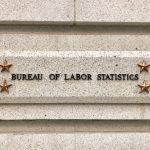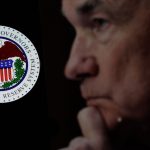Does the Revolving Door Affect the SEC’s Enforcement Outcomes?
Stanford Graduate School of Business
Nanyang Technological University (NTU) – Nanyang Business School
Simi Kedia
Rutgers Business School
Shivaram Rajgopal
Emory University – Goizueta Business School
September 22, 2014
Rock Center for Corporate Governance at Stanford University Working Paper No. 187
Stanford University Graduate School of Business Research Paper No. 14-14
Abstract:
We investigate the consequences of the “revolving door” for trial lawyers at the SEC’s enforcement division. If future job opportunities make SEC lawyers exert more enforcement effort to develop and showcase their expertise, then the revolving door phenomenon will promote more aggressive regulatory activity (the “human capital” hypothesis). In contrast, SEC lawyers can relax enforcement efforts in order to develop networking skills and/or curry favor with prospective employers at private law firms (the “rent seeking” hypothesis”). We collect data on the career paths of 336 SEC lawyers that span 284 SEC civil cases against accounting misrepresentation over the period 1990-2007. We find overall evidence consistent with the “human capital” hypothesis as well as some cross-sectional evidence of “rent seeking.” The revolving door impacts a large spectrum of issues. Our study is limited and is not able to study administrative or non-accounting enforcement cases, the choice of which cases to pursue, the incentives of employees other than trial lawyers and how the revolving door affects rule making. Subject to these caveats, our results provide an important first empirical look into the effects of revolving door incentives on the SEC’s enforcement process.
Does the Revolving Door Affect the SEC’s Enforcement Outcomes? – Initial Evidence from Civil Litigation
“At a minimum, the revolving door has undermined the integrity of the SEC’s oversight on numerous occasions, and the SEC isn’t policing as aggressively as it should,” said Nick Schwellenbach, POGO’s director of investigations, quoted in Hilzenrath (2011).
Introduction
In this paper, we provide an initial examination of whether revolving doors are associated with compromised regulatory oversight by the SEC. In particular, we investigate whether civil cases against accounting misrepresentation are influenced by the past and future job prospects of prosecuting SEC lawyers. The media, members of Congress, academics, former employees of the SEC and investors have raised questions about the impact of the revolving door on the SEC’s efficacy and independence. Indeed, ex-SEC chairwoman, Mary Schapiro (US Senate 2009, page 28), testified that the SEC must seek to avoid conflicts created by employees “walking out the door and going to a firm and leaving everybody to wonder whether they showed some favor to that firm during their time at the SEC.” A GAO report (2011) contends that even the mere appearance of a conflict of interest could undermine confidence in the enforcement process at the SEC, and a report from the SEC watchdog, Project for Government Oversight (2011), discusses individual cases where revolving door incentives likely undermined SEC enforcement. Despite the inherent importance of the SEC’s revolving door phenomenon, there is surprisingly little systematic evidence on the topic. Our paper attempts to provide initial evidence by examining whether SEC trial lawyers’ career prospects are associated with their enforcement efforts, while at the SEC.
Revolving doors lead to both the SEC hiring lawyers from firms that they regulate as well as SEC officials leaving to work for firms that are regulated.1 Revolving doors are natural in that the SEC needs industry specific expertise to monitor and regulate effectively, and regulated firms need experience and knowledge of complex regulations to minimize the cost of compliance. However, revolving doors can undermine enforcement if SEC lawyers are captured by past or future private employers.2 Specifically, revolving doors raise concerns that: (i) prior experience in industry makes SEC personnel unduly sympathetic to industry’s interests; or (ii) SEC personnel go easier on violations to curry favor with future employers. Crucial to whether revolving doors enhance or compromise regulatory effort is the reason why the regulator is being hired by industry. If the SEC official is being hired primarily for his knowledge of the complex regulatory environment and technical expertise, he will have an incentive to invest in his human capital at the regulatory agency to increase his future prospects in industry, which, in turn, will make him enforce regulations more aggressively (Che 1995). Moreover, as Salant (1995) suggests, SEC personnel might follow aggressive enforcement practices to signal their competence to their prospective employers. We label these arguments as the “human capital hypothesis.” In contrast, if the SEC official is being hired primarily for his ability to lobby and influence decision makers at the agency, he is likely to under-emphasize or even compromise enforcement outcomes to curry favor with prospective employers (the “rent-seeking hypothesis”).
See full via SSRN











